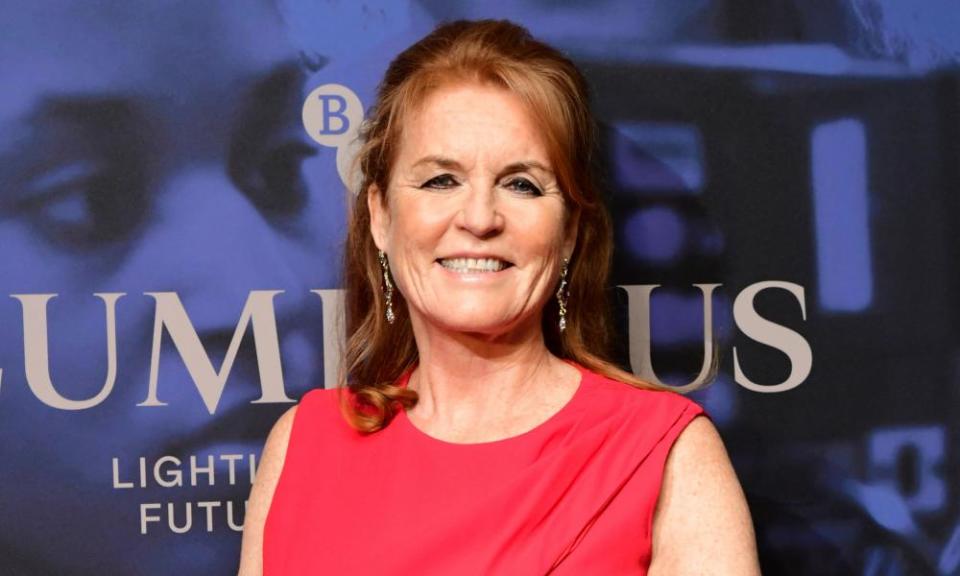Russell T Davies, unafraid to cast his show based on actors’ sexuality
The last time Russell T Davies released a television series, I was enthralled by every episode and at the same time deeply relieved when it was over and I no longer had to think about any of it again.
The apocalyptic Years and Years served as a menu for the horrors of 2020, the only difference being that Davies stretched out the misery over a good few years, rather than cramming it all into a blockbuster 12 months. I have found myself thinking about it often.
Davies has a way of nailing a moment and a mood and It’s a Sin, his eagerly awaited Channel 4 drama about young gay men in London at the beginning of the Aids crisis, promises to be an early standout of television this year. In an interview with the Radio Times, Davies talked about a newly realised desire for “authenticity” when it comes to casting.
“You wouldn’t cast someone able-bodied and put them in a wheelchair, you wouldn’t black someone up. Authenticity is leading us to joyous places,” he said, discussing the idea that gay characters should be portrayed by gay actors.
This led to a handful of “gay roles for gay actors”-style headlines, but the truth is that this discussion is more nuanced than that, though subtlety is not so headline-friendly. I don’t think it is quite the same as able-bodied actors playing disabled characters and I don’t think there is a definitive ruling to be handed out, once and for all, by the Gay Authority.
Davies seems to have found something special in the gay actors involved in telling this particular story about gay men and surely that is the goal for every creator. But it shouldn’t be a sweeping judgment or a final word. Some straight actors have played gay roles beautifully. Gay actors playing straight roles, particularly romantic leads, gives me a thrill, too, because it suggests that a different sort of progress is being made. It is surely only ever a matter of making the best choice, with the best intentions.
A drama about gay men written by a straight man with no experience of that world would probably sound alarm bells and rightly so; one written by people who know it inside out is far more reassuring. Authenticity exists behind the cameras as much as it does in front of them. Queer crews, queer writers and queer showrunners are more important than the sexual history of the performers. Still, progress rarely follows a straight line.
Sarah Ferguson and a royal romance at Mills & Boon

Over Christmas, BBC Two showed a wonderfully entertaining and nostalgic documentary called Being Bridget Jones.
As well as featuring Hugh Grant charming the granny pants off most viewers, it also revealed that Bridget’s creator, Helen Fielding, was knocked back by Mills & Boon for producing a novel that appeared to be too smutty for its standards. It was set in a refugee camp and Fielding explained that a key scene featured a snake that wasn’t a snake.
The publisher has, however, found room in its stable to welcome the Duchess of York, Sarah Ferguson, the woman once married to notorious non-sweater Prince Andrew. While Ferguson has written a library’s worth of children’s stories and has dabbled in memoirs, dieting and self-help books, this makes her the first royal to try her hand at romantic fiction. Her debut novel, Her Heart for a Compass, will be published in August and will tell the story of her great-great-aunt, Lady Margaret Montagu Douglas Scott, using historical research and her own “imagination”. No doubt the secretary of state for culture, Oliver Dowden, will insist that it is clearly labelled as fiction, in case readers are easily confused.
Olivia Rodrigo, a Spotify star is born and she’s only 17

Last Monday, a Spotify global streaming record was broken by a brand new song that was played 15.7m times in a single day. Then that record was broken again on Tuesday, by the same song, when it was played more than 17m times. (The service is now writing the artist a cheque for roughly £2.29.)
The song is called drivers license – lower case, naturally, and no apostrophe, nanna! – by Olivia Rodrigo, star of Disney series High School Musical: The Musical: The Series, which is abbreviated by fans to HSMTMTS and which sounds like a stage whisper written down.
It looks like drivers license will take her to the top of the US pop charts. Rodrigo is just 17 and what we are witnessing is the birth of a celebrity in real time. It is, so far, an adorably gentle supernova of a Star Is Born story.
The song is so fantastically teenage that it’s practically slamming the door as it refuses to do its maths homework. Knowing how obsessively I would play the same song over and over as an adolescent, it isn’t out of the realms of possibility that 16m of those 17m streams came from a handful of crying kids in their bedrooms.
It is easy to see the charm of drivers license, which exists at the centre of a pop Venn diagram, borrowing the emotive breathiness of Billie Eilish, the narrative flair of Taylor Swift, the mopey melodrama of Lana Del Rey, with a bit of a Lorde-y stomp thrown in. It has, as young people probably don’t say any more, all the feels.
• Rebecca Nicholson is an Observer columnist

 Yahoo Finance
Yahoo Finance 